Interview: Eric Michael Gillett of The American Songbook Association Celebrates Eric Michael Gillett at Chelsea Table + Stage
It's a special day for Eric Michael Gillett, as a stellar cast of stars honor him with a new award.
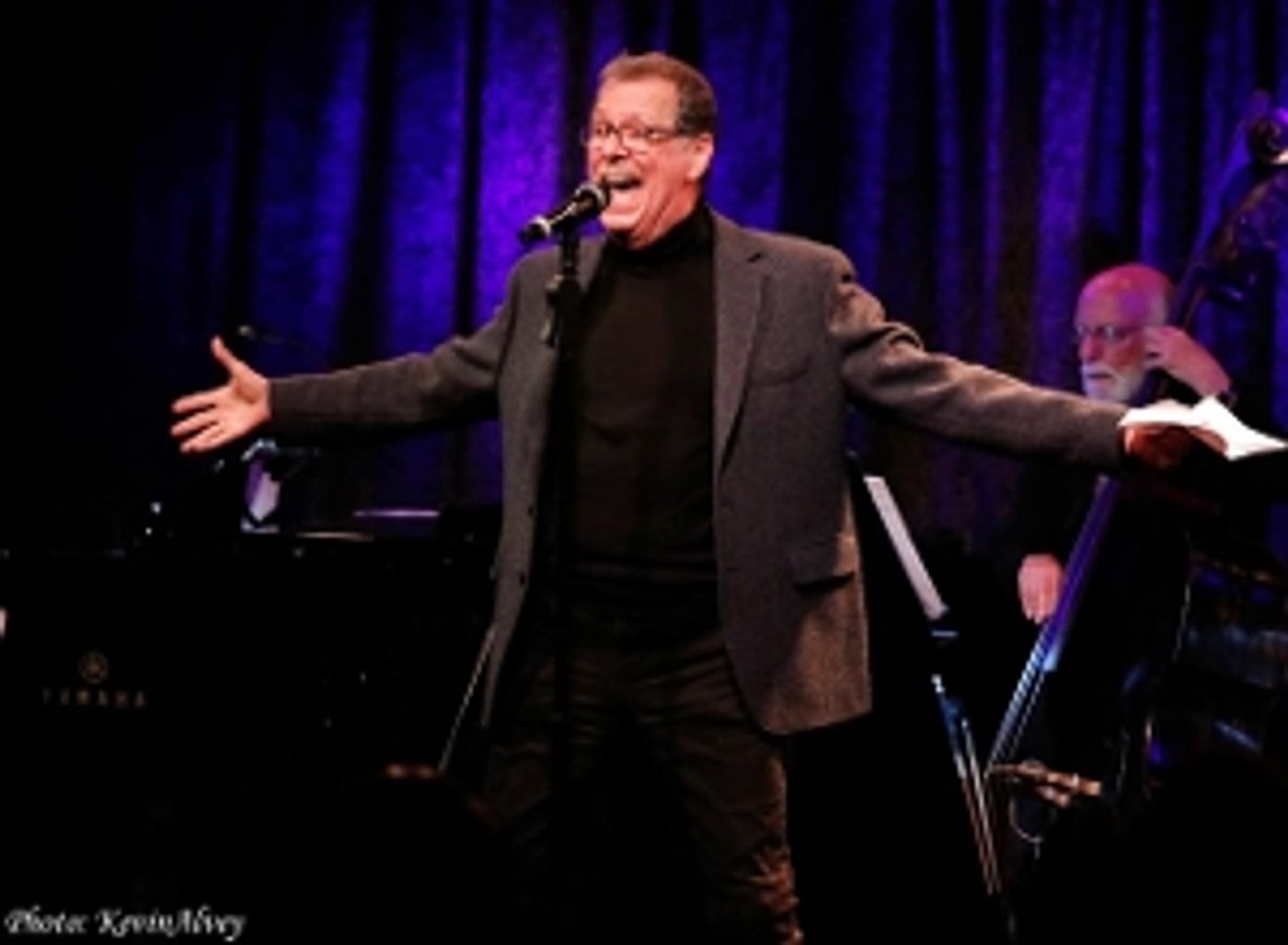 Tonight Eric Michael Gillett will be given the first-ever Darrell Henline Award by the American Songbook Association, in a gala performance featuring some of the industry's greatest talents, all of them close friends of Mr. Gillett's, all of them hand-chosen by the honoree, himself, to appear.
Tonight Eric Michael Gillett will be given the first-ever Darrell Henline Award by the American Songbook Association, in a gala performance featuring some of the industry's greatest talents, all of them close friends of Mr. Gillett's, all of them hand-chosen by the honoree, himself, to appear.
The late Darrell Henline was the original founder and publisher of Cabaret Scenes Magazine, and the American Songbook Association has chosen to create this award that comes with the qualifying description"for Excellence and Distinction in a professional Career in Cabaret" and they could not have chosen a more worthy person to take home the inaugural trophy.
An actor, a singer, a teacher, a mentor, a director, and a leader in the community, Eric Michael Gillett has spent decades working in cabaret and concerts, all the while maintaining his work on screen and on Broadway (and an occasional circus) but he has always come back to the small venues, where he can nurture his first love of singing.
In a performance that will be live-streamed the nightclub Chelsea Table + Stage will host the production in which EMG will be given his honor after being paid tribute by close friends Adriane Lennox, Karen Akers, Amy Spanger, Steve Ross, Aaron Lee Battle, Kelli Barrett & Jarrod Spector, and some of the students from his voice studio whose names are becoming quite prominent.
As the hours ticked away til the big night, Eric Michael Gillett got on the phone with Broadway World Cabaret for a chat about his special night, his need to mentor, and the state of affairs for modern-day actors trying to make a living.
This interview has been edited for space and content.
Hello?
Hi, it's Stephen.
Hi, Stephen. How are you?
I'm fine. How are you today?
I'm well, I'm in self-tape hell and, you know, the things that happen when you've been away for three weeks doing a show and you've got a pile of stuff ahead of you to get through. You've been there. You know what it is!
I wouldn't know self-tape hell from regular hell. What is that?
Well, self-tape hell is regular hell, but you have to put it on tape. So, it's like you have five things that are happening, but your agent calls and says, "Can you have this four-scene submission to me by tomorrow at five?" That's what self-tape hell is.
So that's what it's about for the actors now, huh?
Yeah. Everything is self-tape. In the old days, if you sent me a scene on Friday or four scenes on Friday and said, "Be in the studio or the office on Sunday," you'd walk in with your sides and you'd do it. But now you've gotta do your camera set-up, you have to be off-book, you have to be dressed, you have to do different set-ups for each different scene. Whereas, in a studio, they accept that you're just gonna stay in the same clothes. You have to shoot four movies is what happens. It's crazy. But this is what we do now. It's what the world is.
Do you think there's benefit to this new system?
Yeah, I do. I think there are benefits. I think one of them is - when you go into an audition, the benefit of going in person is that casting can see what you're doing and give you a note and you can retake it with the note. That's great. On the other hand, when you do it on your own, you can tape it three or four times and you can pick the very best thing that you did, meaning the choice you would make at your optimal spot with no tension. And they get the best you can do, and they can look at it. And if they're smart (I've had this happen a couple of times) they'll write back and they'll say, "We loved what you did. Could you do it with this?" - nine times out of ten they don't do that. They just look at it and you either get the job or you don't, but there's a chance to control the outcome. Whereas, in person, there's a chance to control the process.
I guess that's the evolution of the art form in the industry now.
It is. And the crazy thing is that then you do everything and if they do call you back, you go to the callback, and sometimes it's in person, but sometimes it's on tape or live stream. And it's not as organic as it used to be but at the same time, you do absolutely have a little more control over the output. I personally have grown to enjoy it, but I know that there are actors who resist it terribly. I just feel like, if this is the condition, then I'm gonna try and make myself find a way to like it so that I put out the best product I can put out.
Now, you started out as a live performer.
Always - it was all I did for years
And yet you've had the great, good luck to successfully segue onto the screen.
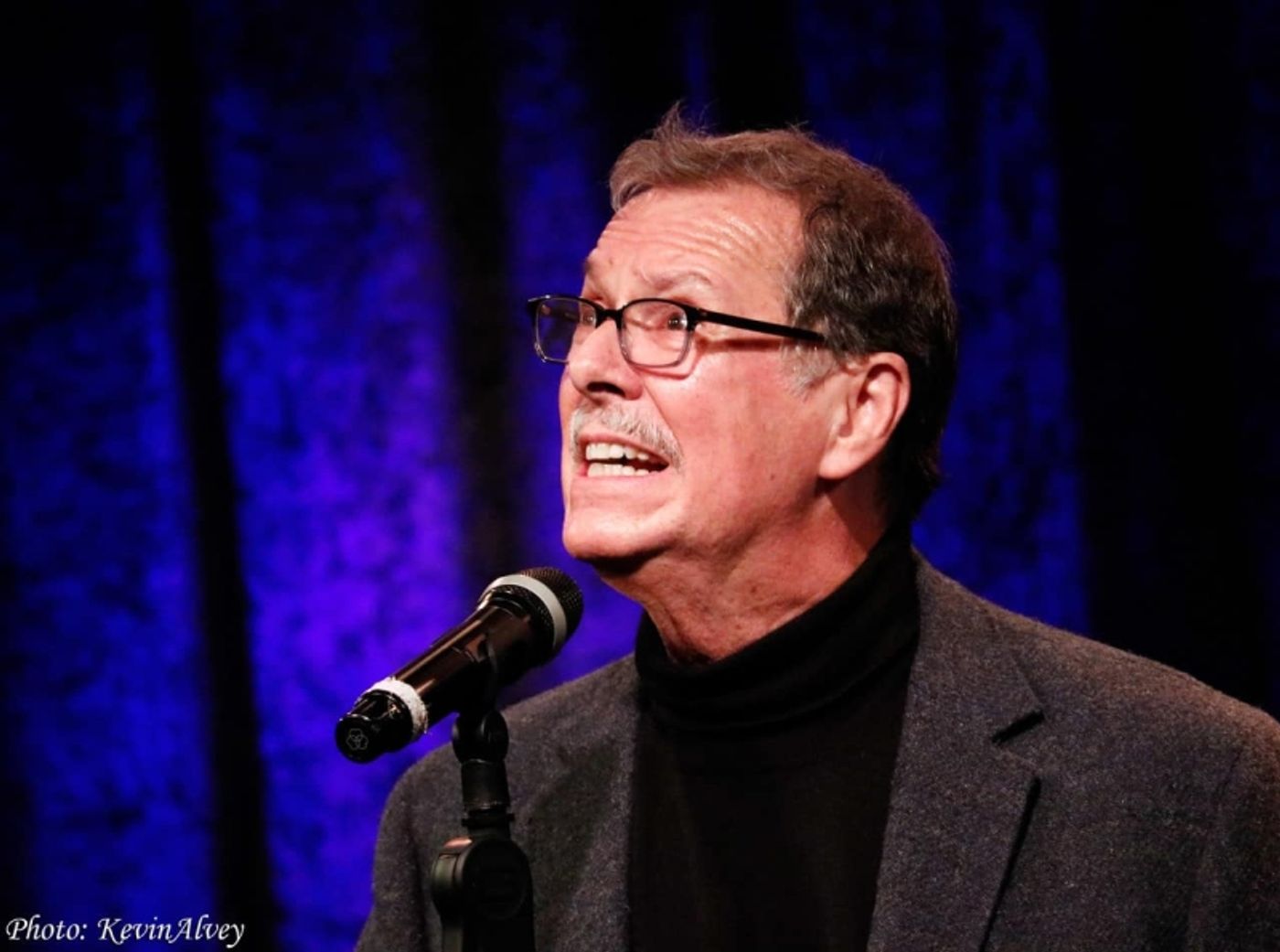 I was very fortunate - I had a great acting teacher here in New York. I had great acting teachers before, but my acting teacher in New York was more well known for her work with screen actors than for stage, even though she was focused on the stage. Alice Spivak was known for her work with film actors and her name on my resume actually got me my very first booking in New York, Maid In Manhattan, because the guy didn't know me from Adam, but he saw that I studied with Alice and he brought me in for an audition and I booked it. From there, I just said, "I like film acting." And it's turned out very nice. I book a few things every year and it's nice because film and TV is the gift that keeps on giving because there are residuals that come in down the line and it's there on film, so it's permanent, whereas a play, as much as you may love the moment of doing it, once you're done, like I just did The Fantasticks and I loved it, but it's done. And I won't see that again. They're two different animals, but I do love film and TV. I have a blast.
I was very fortunate - I had a great acting teacher here in New York. I had great acting teachers before, but my acting teacher in New York was more well known for her work with screen actors than for stage, even though she was focused on the stage. Alice Spivak was known for her work with film actors and her name on my resume actually got me my very first booking in New York, Maid In Manhattan, because the guy didn't know me from Adam, but he saw that I studied with Alice and he brought me in for an audition and I booked it. From there, I just said, "I like film acting." And it's turned out very nice. I book a few things every year and it's nice because film and TV is the gift that keeps on giving because there are residuals that come in down the line and it's there on film, so it's permanent, whereas a play, as much as you may love the moment of doing it, once you're done, like I just did The Fantasticks and I loved it, but it's done. And I won't see that again. They're two different animals, but I do love film and TV. I have a blast.
Is this your first time doing the Fantasticks?
No, I'm embarrassed to say that I did Matt, the boy, 51 years ago and then got cast asThe Girl's Father for The Cape Playhouse. It was my first time up at The Cape Playhouse - we closed their 96th season. I had the most fun I've ever had in my life - wonderful cast, wonderful theater. It was really fascinating to be there - every star in the world in the fifties, sixties, and seventies played The Cape Playhouse.
And now you have.
And now I have. I love that. That was a lovely way to look at it.
And why are you embarrassed to say that you played Matt? I think it would be fun to get to revisit this piece of theater from another frame.
It's just that I hadn't thought about the show in 50 years and it wasn't until they offered me the part, that I suddenly went, "Wait a minute, I've done this show." And I went back to some old scrapbook that was in a box and I found pictures of me at 20 years old playing Matt. And interestingly, it was much more fun playing the father. I was working with a great character actor named Bill Evans who has done Fantasticks for years. He played the boy's father and he knows every beat of the show and we've worked together five times, so we had this great charisma and chemistry together. We just had a blast. This was one of the nicest experiences I've had in the theater in years.
We have to take the nice experiences and hang onto them.
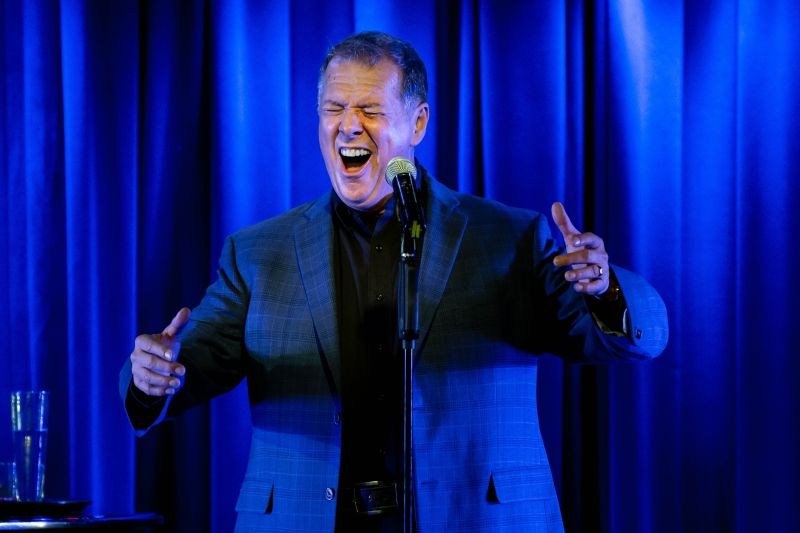
I agree with you. I'll give you an example. I hadn't done a play since the pandemic began and back in January/February of this year, I got cast in a production of A Class Act and it was the best way to come back to the theater - a brilliant, talented cast, a brilliant director, a brilliant choreographer, brilliant musical director, and just the most beautiful production. And I walked away from it - we are still (every single member of that cast) in touch on a daily basis. We are in a phone group where we text each other. I never loved a cast as much as I loved these kids, and I say kids, 'cause I was twice as old as the youngest of them. But live theater gives you a community that's together for a few weeks, and sometimes you get lucky and it's a community, and not just one or two people that you take away with you. And that's how I felt about A Class Act.
You've mentioned your age a couple of times now. During the pandemic, you had a couple of virtual concerts and one of them was to celebrate your birthday.
I hadn't done anything since Stop This Train, which was a couple of years earlier, and everybody was doing virtual concerts and virtual shows. I was doing some benefits, doing the virtual thing, but I didn't really feel I had anything to say. And then in March or April of that year, I suddenly understood how the pandemic had affected me - I got the moment of shifting from it was going to be spring in Manhattan, and we lived in a year and a half of winter and suddenly it was spring again, and I didn't know how I got there. So Water Under the Bridge was my first virtual solo concert and I found that I liked the virtual concept a lot. So, since my birthday was coming up in August, I started thinking, "I think I need to sing again."
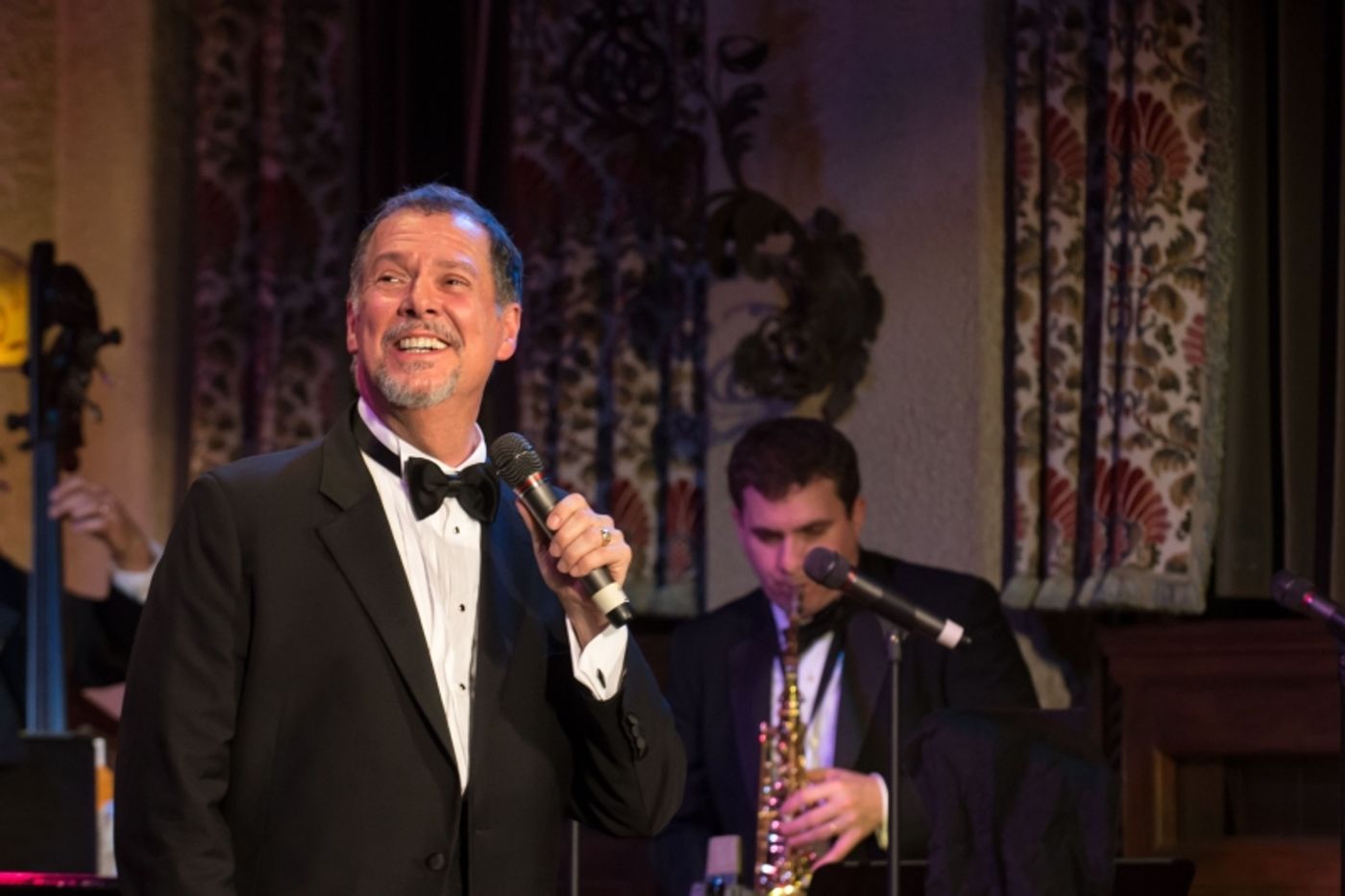 My mother always said I came out of the womb kicking and singing. So I thought "I have not sung full out in so long. I need to do this." I started toying with the idea of what it is about the passage of time and what all those things mean to us. So for my 70th birthday, I decided, instead of throwing a party ('cause who was gonna come, 'cause we were still masking and everything at that point) I just said, "I wanna do something where I can share my birthday with a larger community of people that I know worldwide. I want to share what I'm thinking." That became Water Under the Bridge, which was just one of the loveliest experiences I've had working on a cabaret show in forever. I felt I had something to say that was important to me, but also important to the larger audience. And I was working with like the best musical director. I know, Mike Pettry, and I walked away from it saying this was so worth it to me. I bless Bernie Furshpan for MetropolitanZoom - it was a lifeline to doing a really professional, good-looking show that could reach an audience beyond New York City and in time zones that you weren't in. People who hadn't seen me sing in the last two decades tuned in, from overseas - I had people watching from Taiwan, from Korea, you name it. It was thrilling to be able to just be full voice and happy to be doing the thing that I love to do more than anything, in a situation where I felt I had a story to tell. It was a great night.
My mother always said I came out of the womb kicking and singing. So I thought "I have not sung full out in so long. I need to do this." I started toying with the idea of what it is about the passage of time and what all those things mean to us. So for my 70th birthday, I decided, instead of throwing a party ('cause who was gonna come, 'cause we were still masking and everything at that point) I just said, "I wanna do something where I can share my birthday with a larger community of people that I know worldwide. I want to share what I'm thinking." That became Water Under the Bridge, which was just one of the loveliest experiences I've had working on a cabaret show in forever. I felt I had something to say that was important to me, but also important to the larger audience. And I was working with like the best musical director. I know, Mike Pettry, and I walked away from it saying this was so worth it to me. I bless Bernie Furshpan for MetropolitanZoom - it was a lifeline to doing a really professional, good-looking show that could reach an audience beyond New York City and in time zones that you weren't in. People who hadn't seen me sing in the last two decades tuned in, from overseas - I had people watching from Taiwan, from Korea, you name it. It was thrilling to be able to just be full voice and happy to be doing the thing that I love to do more than anything, in a situation where I felt I had a story to tell. It was a great night.
You seem to be very adaptable when it comes to the arts and where and how you will perform and work.
Do you remember, there's a line in Hello Dolly!: if you're gonna live from hand to mouth, you better be ambidextrous... When I was young, I was told by some very big professionals I would never be a singer and not to try to be that, I should only compete as an actor 'cause I was a very fine actor. But the problem was I wanted to sing, and I found a teacher, Jan Ritschel, who turned me into a singer. And I discovered that a career is not just a series of jobs, it's a series of places that allow you to do the thing you do best and to explore more aspects of it. I ended up in Las Vegas for a long time as a production singer. I ended up in the circus and was the ringmaster for Ringling Brothers for 12 years. And, then, at a certain point, I just went, "You got into this business because you wanted to do Broadway and you're now in your late forties. If you don't go now, when are you gonna go?" So I moved here. I didn't think about it as shifting aspects of what I was doing, I just looked at it as shifting venues. I was already doing cabaret - even while I was in the circus, I was singing cabarets in New York as early as 1994.
I got my first Broadway show right away, which was really lovely, and the Broadway shows led to my years with the New York City Opera, and then a season doing a show at New York City Ballet. And then from there to more regional stuff, but along the road (I was) also continuing the cabaret output and doing more television, more film, because I started to recognize the value of the permanence of the footage. I don't think I've told anybody this, but when I was in high school, what I really wanted to be was a teacher. I was so nerdy, I was the president of the Future Teachers Association. My intention was to be a teacher in the arts. I went to college and I discovered that a lot of the teachers in the arts (not all of them, obviously, I'm not making a generalization) but a lot of the teachers were not very happy doing what they were doing.
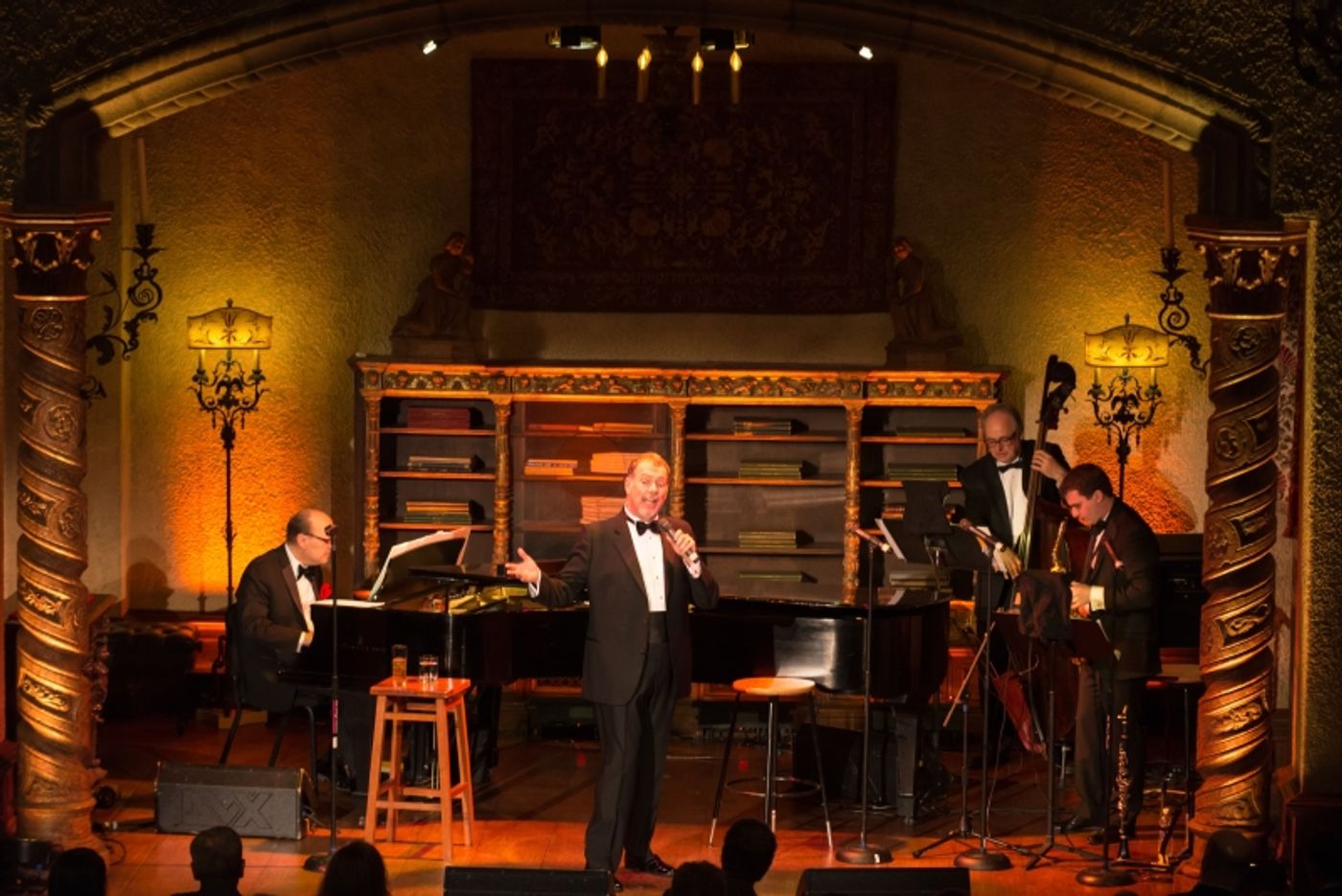
They had wanted other careers and they didn't get them - so they taught... and they were very angry. There was one teacher in particular who really was not a terribly nice person. He had a very negative impact on me and it made me realize that I don't ever wanna be a negative influence on a student's life. And because I was getting offers to perform, I started performing and I decided to pursue that instead. Now, here I am... not necessarily at the end of my career, more in the later last third of my chapters maybe, and I'm back doing the thing that I set out to do in the first place. Yes, I perform. Yes, I direct. But what I am more than anything is a teacher and a mentor. My favorite part of my life is taking people and helping people realize their potential and believe in themselves and trying to make them, not necessarily stars because not everyone's going to be one, but the best that they can personally, possibly be, in the room and then work because of it. My two passions are singing and teaching. And one of the things that I love about both of the crafts is that singing allows me to explore myself and teaching allows me to help other people explore themselves.
Is it your work as a teacher and a mentor that has led to the American Songbook Association giving you the Darrell Henline Award?
Well, according to them, it's a combination of everything, of both my career as a performer, and my career as a director. I'm really fortunate. I've performed in most of the really great rooms in town at one point or another. I've had full-on engagements in places like Feinstein's. I played concert halls, my artists play concert halls and big venues. I'm fortunate that I've gotten to work with some great Broadway stars - Jarrod Spector, Kelli Barrett... Mandy Gonzalez - we're about to open her new show in Pittsburgh in two or three weeks. It's a combination of performing at a top level, directing people who are at their top level, but ultimately I think the teaching and the mentoring figured very heavily into the board of directors' decision to select me for this honor.
And I don't ignore that. I've chosen three very fine singers who were members of my studio to perform on the night of the honors because I want the world to see these three people - Bonne Kramer, who is the bassoonist as well as a singer. Ben Moss, who has won the Lucille Lortel Award for his work on Oratorio For Living Things. These people can be proud to be on the stage with someone like Adriane Lenox, who is a freaking Tony award winner. And someone will discover them. That's what teaching gives you: the chance to do to help someone reach their dreams, to help people realize their best possible selves.
What was your immediate reaction when the American Songbook Association told you about the award?
I was very moved because Darrell Henline was one of the first people to support me when I got here. It's so funny that the great American Songbook Association is honoring me because the fact is I don't sing that much great American Songbook material. I do some, and I have an album of Larry Hart stuff, but the fact is that a lot of what I do is newer writers, newer times, people you don't know of. When they told me this was happening, I was like, "Well, thank you. Why would anybody want to come and see me get this award?" And they said, "We think that people know who you are and respect you and will want to be there to honor you."
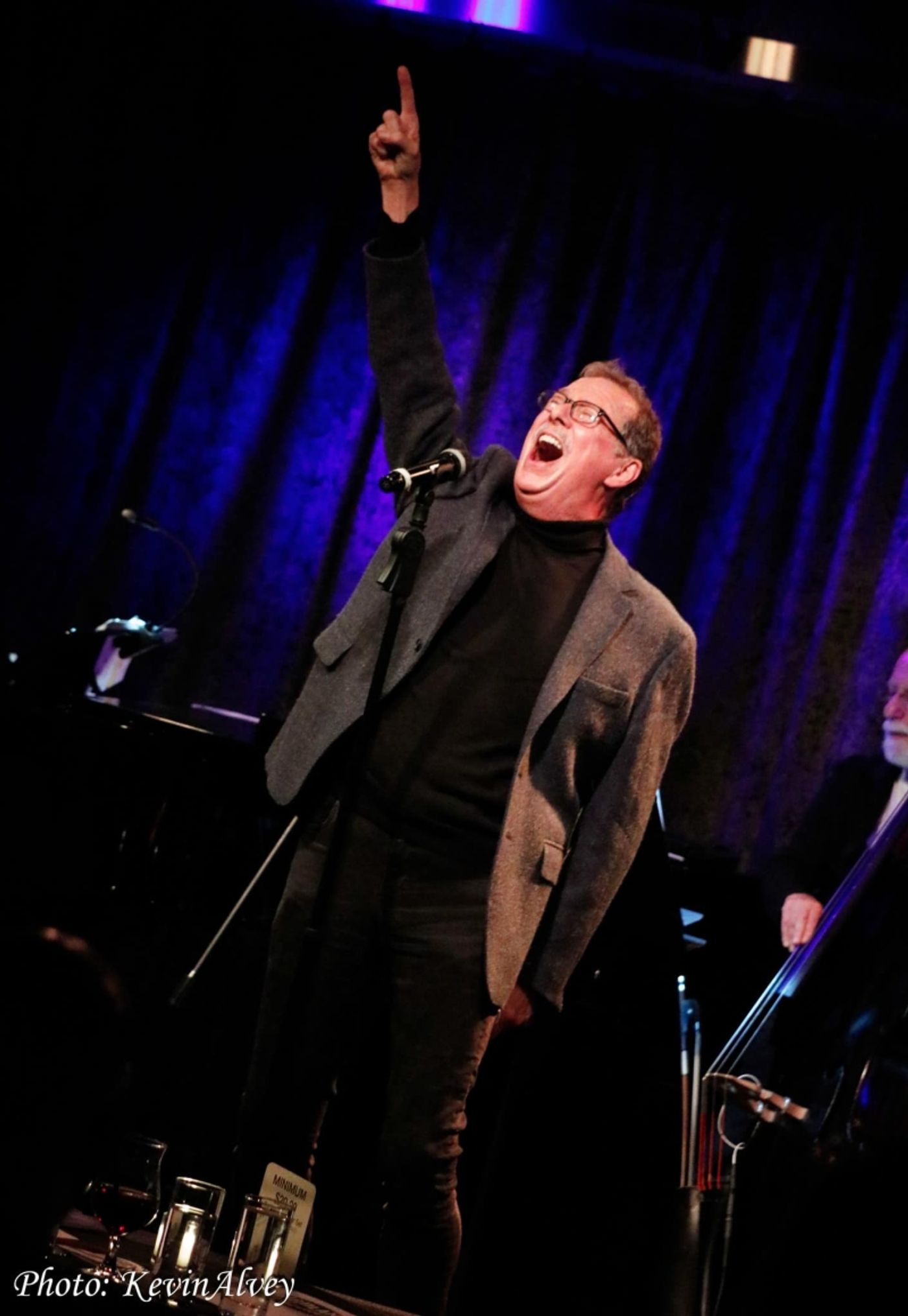 They said, "We'd like to know who you'd like to have sing." And I guess my enthusiasm for the project grew when I gave them a list of people. I said, "If you're gonna ask people to do this, then I don't want it to just be everybody you see every day. I want it to be people that I've known for, some of them, 25 years and if they say no fine, but this is who I want." So... Adriane Lenox (I met Adriane Lenox before I even lived in New York, and I had been a friend of hers for a very long time now, and when I got my first Broadway show, she was in it.) Karen Akers, who was a legend when I came into the business, and I had the great pleasure of being able to direct for a number of years and to have her say yes to coming and doing this thing, on the second! Steve Ross, with whom I have a very close relationship.... These are name people. They don't have to take an evening off to come and do this, but they all said yes. That's when I kind of got the feeling that maybe this was something I should be excited about and not pretend it wasn't a wonderful, lovely honor. I think all of our egos are tied up in the idea that "I'm not deserving of this. I'm not worthy." To a degree, I probably do think that. And maybe that's me being too self-efacing but I honestly didn't think that anybody would make a big deal out of it. And now it turns out that it's kind of a nice, big deal, some wonderful friends who will gather together and some wonderful people will be in the room. It's gonna be a nice night.
They said, "We'd like to know who you'd like to have sing." And I guess my enthusiasm for the project grew when I gave them a list of people. I said, "If you're gonna ask people to do this, then I don't want it to just be everybody you see every day. I want it to be people that I've known for, some of them, 25 years and if they say no fine, but this is who I want." So... Adriane Lenox (I met Adriane Lenox before I even lived in New York, and I had been a friend of hers for a very long time now, and when I got my first Broadway show, she was in it.) Karen Akers, who was a legend when I came into the business, and I had the great pleasure of being able to direct for a number of years and to have her say yes to coming and doing this thing, on the second! Steve Ross, with whom I have a very close relationship.... These are name people. They don't have to take an evening off to come and do this, but they all said yes. That's when I kind of got the feeling that maybe this was something I should be excited about and not pretend it wasn't a wonderful, lovely honor. I think all of our egos are tied up in the idea that "I'm not deserving of this. I'm not worthy." To a degree, I probably do think that. And maybe that's me being too self-efacing but I honestly didn't think that anybody would make a big deal out of it. And now it turns out that it's kind of a nice, big deal, some wonderful friends who will gather together and some wonderful people will be in the room. It's gonna be a nice night.
Let me ask you this: If one of your students, one of the people that you've mentored reacted the way that you reacted to such an honor, what would you say to them?
I would slap them senseless. Stephen! (Laughing) I would say, "I am gonna come after you like a bridge troll in the night if you don't say thank you as a complete sentence and get out there and celebrate this wonderful thing." (Laughing) So, yes, I'm a terrible person because I know what I would do to somebody if it was happening to them, but it's harder to do it for myself. You made me start coffee out my nose.
Don't you think that that reaction is pretty common for people working in the arts?
I think it is. I think people in the arts are used to... it's a struggle all the time to get to the next step, to get to the next job, to get to the next level. I think very often when someone wants to praise you... it's kind of easier when it's praised in print, which is maybe why some people like reviews so much - you can read it, and after the fact, you are like, oh, that's nice, and it's private. But when it's a public thing, I think there's a part of you that's embarrassed. I think there's a part of you that says, "What if nobody wants to even come to this? What if this is gonna be humiliating?"
This is what I tell clients when I get to work on a show with them. I say, "If you're doing the show, 'cause you think you're gonna win an award, if you're doing the show because you think it's gonna make you more well-known, if you're doing the show because you think people are gonna pay attention, you're doing it for the wrong reason." You have to do the show because you have something that you have to get off your chest and you have to do the show because, in your heart of hearts, if nobody shows up, you still needed to do it." I think that's a difficult thing for people to buy into. When I put something up, I always decide in advance: if nobody sees this, it doesn't matter. I did this 'cause I had to say it. And that's what I encourage any artist I work with to believe. You have to say it doesn't matter, I had to do this. I did this for me and my hope is that what I have to say will be heard by other people. Often people have it backwards. They wanna do a show because they want attention, but attention's not necessarily going to follow it's what do you have to say.
Eric, I want to thank you for talking with me today. I really, really appreciate it.
I just am thrilled and thank you. Just thank you.
There are still seats available to tonight's show and the link is HERE and out of towners can see the live stream by getting tickets HERE.
THIS is the Eric Michael Gillett website.
HERE is the American Songbook Association website.
Videos

